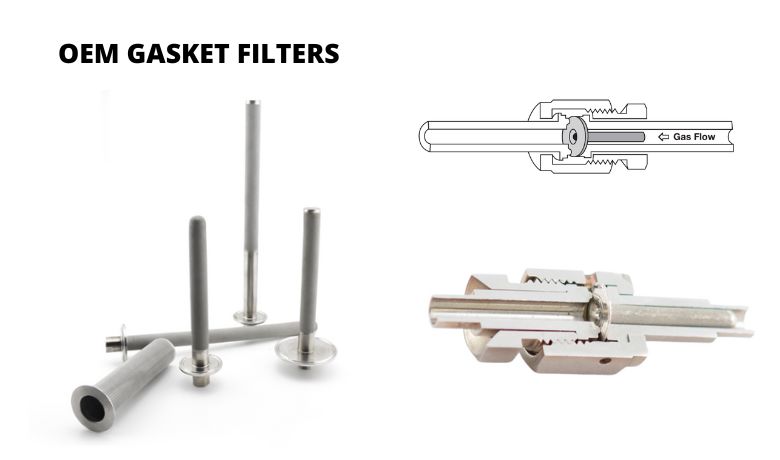-
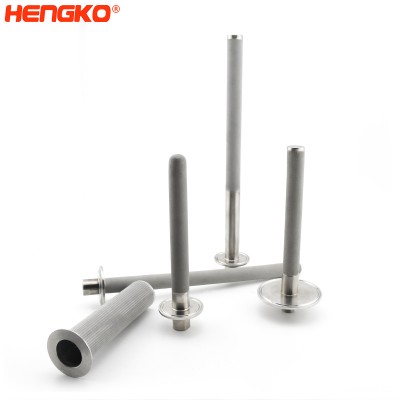
In-Line Gasket Filters for the filtration of gases
Gasket Filter for the filtration of gases For protecting regulators and MFCs, protects critical components from particle damage In-Line Design Easy Installat...
View Detail -
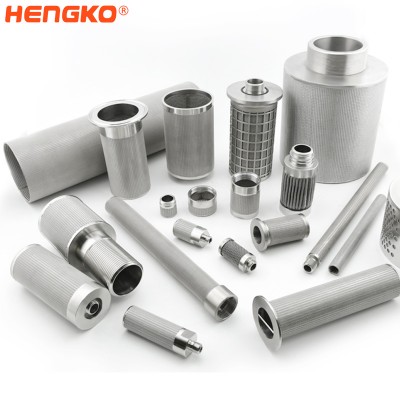
316L Stainless Steel Porous Metal Media 1/4″ and 1/2″ Face Seal Gasket Filter for Extre...
HENGKO manufactures porous metal media in a broad range of materials, sizes, and fittings so they can be easily specified with the characteristics and config...
View Detail -
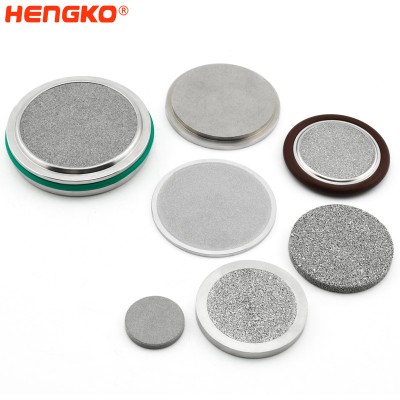
Sintered Stainless Steel Sanitary Tri Clamp Filter Disc with Viton O-Ring frit Gasket f...
At HENGKO® we try to help our customers build high-quality, safe, and precise operations for processing hemp. The best CBD extracts equipment that we’re rec...
View Detail -
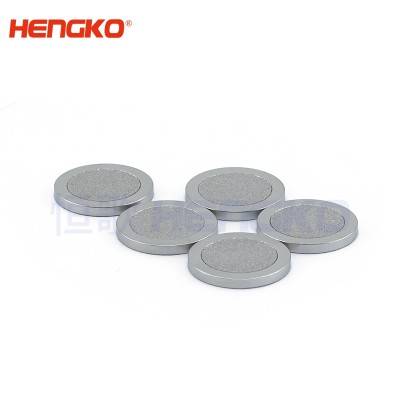
Large stock fast flow rate micron sintered SS 316L porosity backwash in-line gasket st...
Product Describe HENGKO sintered disc filters consist of highly uniform, interconnected networks of pores with tortuous paths that trap solid particles in g...
View Detail
What is Gasket Filter ?
Simply to Say, A Gasket Filter is a Filter Used in Industrial Processes to Remove Contaminants
from Liquids or Gases.
It is a mechanical filtration device that utilizes a gasket or seal to prevent unfiltered fluid from
passing around the filter element.
Application
A gasket filter, or filter gasket, is a component that is generally used in systems that require a filtering process while also needing a seal to prevent leaks.
Here are a few applications of gasket filters you can check :
1. Automotive Industry:
Filter gaskets are used extensively in vehicles for air filters, oil filters, and fuel filters. They help in filtering out any particulates or contaminants, while also providing a seal to prevent leaks in these systems.
2. HVAC Systems:
In heating, ventilation, and air conditioning (HVAC) systems, filter gaskets play a crucial role in preventing the entry of dust and other particulates into the system while ensuring airtight sealing.
3. Water Purification Systems:
Filter gaskets are often used in water purification systems to filter out impurities while maintaining an effective seal to prevent water leakage.
4. Industrial Machinery:
Many pieces of industrial equipment require filters to remove impurities and particulates from oils, fuels, and other fluids. These filters often use gaskets to create a secure seal and prevent leakage.
5. Pharmaceutical and Food Industry:
In the pharmaceutical and food industry, hygiene is critical, and therefore any air or liquid entering the process needs to be filtered thoroughly. Gasket filters are used here for their dual action of filtration and sealing.
6. Aerospace and Defense:
Gasket filters are used in various applications in the aerospace and defense sectors, such as in the filtration and sealing of fuel systems, hydraulic systems, and more.
But You Should Care that the materials used for gasket filters can vary greatly depending on their application, from rubber and silicone to more specialized materials like Viton or PTFE, which can withstand high temperatures and resist chemical corrosion. It's crucial to choose the right material for the specific use-case to ensure the gasket filter's longevity and effectiveness. so please choose the right materials for your filters, also you can easy to contact our sales team by email ka@hengko.com, we will send back within 48-hours
![]()
Advantage of Gasket Filter ?
Gasket filters offer several advantages that make them valuable in various industrial and commercial applications. Here are some of the key advantages of using gasket filters you should know, so you can choose right filter for your filtration system or devices :
1. Effective Filtration :
Gasket filters provide efficient and reliable filtration of liquids or gases. They are designed to remove impurities, particles, contaminants, and other unwanted substances from the fluid or gas stream, ensuring a cleaner and purer end product.
2. Easy Installation :
Gasket filters are generally easy to install due to their design. They can be fitted into existing systems or equipment without the need for complex modifications, reducing downtime during installation or maintenance.
3. Sealing Functionality :
Apart from filtration, gasket filters also serve as effective sealing elements. They create a tight and secure seal between two surfaces, preventing leakage and ensuring a leak-free operation in the system.
4. Customizable Options :
Gasket filters come in various sizes, shapes, and materials, making them highly customizable to suit specific filtration requirements. This versatility allows them to be used in a wide range of applications across different industries.
5. Reusability (Some Types) :
Certain gasket filters, especially those made from metal or other durable materials, can be cleaned and reused multiple times. This reusability factor makes them cost-effective and environmentally friendly.
6. Chemical Compatibility :
Gasket filters are available in different materials, offering chemical compatibility with various fluids and gases. This ensures that the filter material won't react with or be degraded by the filtered medium, maintaining the integrity of the filtration process.
7. Temperature and Pressure Resistance :
Depending on the material used, gasket filters can withstand high temperatures and pressures, making them suitable for demanding industrial applications.
8. Low Maintenance :
Gasket filters require minimal maintenance, especially in the case of self-cleaning or backwashable filters. Regular cleaning or replacement is typically the extent of maintenance required to keep them functioning optimally.
9. Versatility :
Gasket filters find applications in diverse industries, including food and beverage, pharmaceuticals, automotive, petrochemicals, water treatment, and more. Their ability to accommodate different filtration needs adds to their versatility.
10. Protection of Equipment :
By effectively removing particles and contaminants from the fluid or gas stream, gasket filters help protect downstream equipment and processes from damage, extending their lifespan and reducing maintenance costs.
Overall, gasket filters play a crucial role in maintaining the quality and efficiency of various processes. Their combination of effective filtration, ease of installation, and adaptability to different environments makes them a valuable component in many industrial systems.
Why OEM Gasket Filter from HENGKO ?
As a leading filtration solution provider, HENGKO offers premium OEM Gasket Filters with guaranteed
precision, durability and reliability. Drawing on years of experience and expertise, we design filters that
are perfectly suited to your application, ensuring maximum protection and extending the life of your
equipment.
Our friendly team of experts is committed to working closely with you to understand your
unique needs and provide solutions tailored to meet your requirements. Choose HENGKO for
high-performance and cost-effective filtration solutions with peace of min
Main Features of Gasket Filter :
1. Material:
Gasket filters are typically made of rubber or other flexible, durable materials that can withstand the pressure and temperature of the fluid being filtered.
2. Shape:
Gasket filters are available in a variety of shapes, including circular, rectangular, and oval, to fit different types of filter housings and equipment.
3. Size:
Gasket filters come in a range of sizes to accommodate different flow rates and filter housing sizes.
4. Pore size:
The pore size of a gasket filter refers to the size of the openings in the filter material. Gasket filters are available in a range of pore sizes to filter out different sizes of contaminants.
5. Filtration efficiency:
The filtration efficiency of a gasket filter refers to its ability to remove contaminants from a fluid. Gasket filters can have different levels of filtration efficiency, depending on the size of the pores and the type of filter material used.
6. Pressure rating:
The pressure rating of a gasket filter refers to the maximum pressure it can withstand before failing. Gasket filters are available with different pressure ratings to suit different applications.
7. Temperature rating :
The temperature rating of a gasket filter refers to the maximum temperature it can withstand before failing. Gasket filters are available with different temperature ratings to suit different applications.
8. Compatibility :
It is important to choose a gasket filter that is compatible with the fluid being filtered and the equipment it will be used in. Gasket filters are available in different materials and with different chemical resistances to suit different applications.
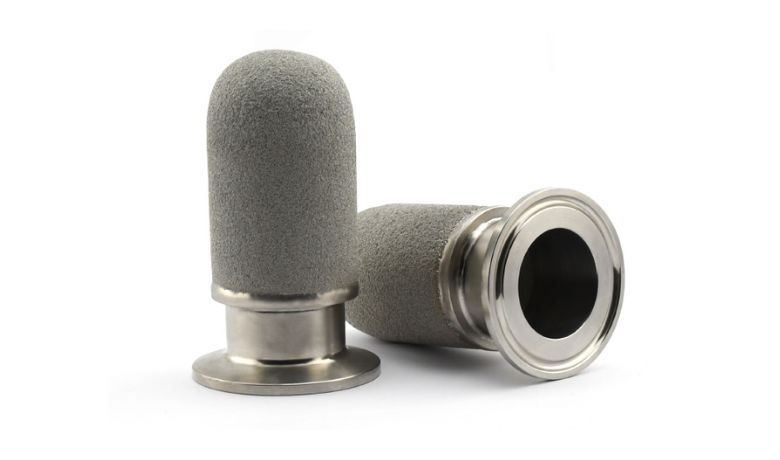
Details of Applications of Gasket Filter for Different Industry
1. Filtration of liquids in the food and beverage industry:
Gasket filters are often used in the food and beverage industry to filter out contaminants and impurities from liquids such as milk, beer, and wine. These contaminants can include bacteria, yeast, and other microorganisms that can affect the taste, appearance, and quality of the final product.
2. Filtration of gases in the chemical and petrochemical industry:
Gasket filters are used in the chemical and petrochemical industry to filter out contaminants and impurities from gases such as hydrogen, oxygen, and nitrogen. These contaminants can include dust, dirt, and other particles that can affect the quality and purity of the gas.
3. Filtration of liquids in the pharmaceutical industry:
Gasket filters are used in the pharmaceutical industry to filter out contaminants and impurities from liquids such as medications, vaccines, and other pharmaceutical products. These contaminants can include bacteria, fungi, and other microorganisms that can affect the safety and effectiveness of the final product.
4. Filtration of oil and fuel in the automotive and aviation industries:
Gasket filters are used in the automotive and aviation industries to filter out contaminants and impurities from oils and fuels such as gasoline, diesel, and jet fuel. These contaminants can include dirt, dust, and other particles that can affect the performance and efficiency of the engine.
5. Filtration of water in the water treatment and purification industry:
Gasket filters are used in the water treatment and purification industry to filter out contaminants and impurities from water such as bacteria, viruses, and other microorganisms. These contaminants can affect the safety and quality of the water for drinking, bathing, and other purposes.
6. Filtration of air in air conditioning and ventilation systems:
Gasket filters are used in air conditioning and ventilation systems to filter out contaminants and impurities from the air. These contaminants can include dust, pollen, and other particles that can affect the quality and purity of the air.
7. Filtration of fluids in hydraulic and lubrication systems:
Gasket filters are used in hydraulic and lubrication systems to filter out contaminants and impurities from fluids such as oil and water. These contaminants can affect the performance and efficiency of the system.
8. Filtration of liquids in the power generation industry:
Gasket filters are used in the power generation industry to filter out contaminants and impurities from liquids such as water and oil. These contaminants can affect the performance and efficiency of the power generation equipment.
9. Filtration of liquids in the oil and gas industry:
Gasket filters are used in the oil and gas industry to filter out contaminants and impurities from liquids such as crude oil and natural gas. These contaminants can affect the quality and purity of the final product.
10. Filtration of liquids in the medical and biotech industry:
Gasket filters are used in the medical and biotech industry to filter out contaminants and impurities from liquids such as blood, plasma, and other biological fluids. These contaminants can include bacteria, viruses, and other microorganisms that can affect the safety and effectiveness of medical treatments and procedures.
Frequently Asked Questions of gasket filters
1. What Are Gasket Filters Used For?
Gasket filters are used to remove contaminants from fluids, such as water, oil, and air. They are commonly used in a variety of industrial and commercial applications, such as in machinery, automotive systems, and water treatment plants.
2. How do Gasket Filters Work?
Gasket filters work by trapping contaminants in the filter material as fluid flows through the filter. The size of the pores in the filter material determines the size of the contaminants that can be removed.
3. What Are the Different Types of Gasket Filters?
There are several types of gasket filters, including screen filters, pleated filters, and depth filters. The type of filter used depends on the specific application and the size and type of contaminants being removed.
4. What is the Pore Size of a Gasket Filter?
The choice of the pore size for a gasket filter depends on the specific application and the type of particles or contaminants you need to filter out. Pore size is a critical parameter as it determines what size of particles can pass through the filter and what will be retained. Here are some considerations for selecting the right pore size for a gasket filter:
1. Particle Size:
The most important factor is the size of the particles you want to remove. The pore size should be smaller than the size of the particles you are trying to filter. For example, if you want to remove large particles, you would need a larger pore size; for smaller particles, a smaller pore size is required.
2. Filtration Efficiency:
Smaller pore sizes generally offer higher filtration efficiency, as they can capture a wider range of particle sizes. However, this can also lead to increased pressure drop across the filter, impacting the flow rate.
3. Flow Rate:
The pore size can affect the flow rate of the fluid passing through the filter. Smaller pore sizes may result in slower flow rates due to higher resistance to flow.
4. Application:
Consider the specific application where the gasket filter will be used. For example, in the food and beverage industry, a filter with a very fine pore size may be required to ensure the removal of microscopic contaminants. In contrast, industrial applications might require a larger pore size to allow for higher flow rates and prevent clogging.
5. Pre-filtration and Post-filtration:
Sometimes, a combination of filters with different pore sizes is used in a system. Larger pore sizes can be used as pre-filters to remove larger particles, extending the life of the main filter with a smaller pore size.
6. Compatibility:
Ensure that the material of the gasket filter and the pore size are compatible with the fluid or gas being filtered. Some filters may not be suitable for certain chemicals or high-temperature applications.
Common pore size options for gasket filters range from micrometers (µm) to tens of micrometers. For specific applications, the pore size can be as small as sub-micrometer (nanometers) or as large as several hundred micrometers.
In summary, there is no one-size-fits-all answer for the best pore size for a gasket filter. The appropriate pore size depends on the particles to be removed, the required filtration efficiency, flow rate considerations, and the particular application in which the filter will be used. It's essential to carefully evaluate these factors to choose the most suitable gasket filter for your needs.
5. How Often Should Gasket Filters be Replaced?
The frequency of gasket filter replacement depends on the specific application and the conditions in which the filter is used. In general, gasket filters should be replaced when they become clogged or when the pressure drop across the filter becomes too high.
6. How Do You Install a Gasket Filter?
Installing a gasket filter typically involves positioning the filter in the filter housing, securing it in place with bolts or other fasteners, and connecting the inlet and outlet ports. It is important to follow the manufacturer's instructions and use the proper tools to ensure a proper installation.
7. Can Gasket Filters be Cleaned and Reused?
Some gasket filters can be cleaned and reused, while others are designed to be disposable. It is important to follow the manufacturer's recommendations for cleaning and reuse of the specific gasket filter being used.
8. What Are the Advantages of Gasket Filters?
Gasket filters have several advantages, including low cost, versatility, and ease of installation. They are also available in a range of materials and pore sizes to suit different applications.
9. What Are the Disadvantages of Gasket Filters?
One disadvantage of gasket filters is that they may not provide as fine a filtration as other types of filters, such as cartridge filters. They may also have a lower pressure rating and may not be suitable for use in high-pressure applications.
10. What Factors Should be Considered When Choosing a Gasket Filter?
When choosing a gasket filter, it is important to consider the material and pore size, the filtration efficiency, the pressure and temperature ratings, and the compatibility with the fluid and equipment being used.
11. How Do you Store Gasket Filters?
Gasket filters should be stored in a dry, cool place, away from direct sunlight and heat sources. They should also be protected from moisture and chemicals, as these can damage the filter material.
12. How Do you Dispose of Gasket Filters?
Gasket filters should be disposed of in accordance with local regulations. Some gasket filters can be recycled, while others must be disposed of as hazardous waste. It is important to follow the manufacturer's recommendations for disposal of the specific gasket filter being used.

Still have any questions or have special application for gasket filter,
Please contact us by email ka@hengko.com and send us a inquiry as follow :
